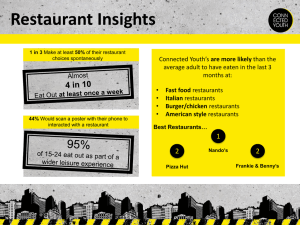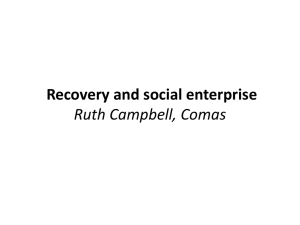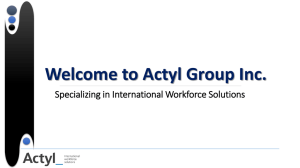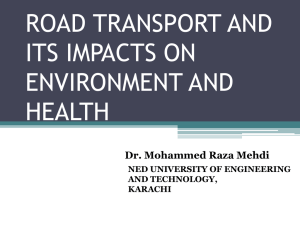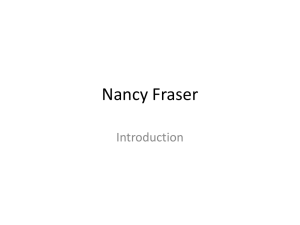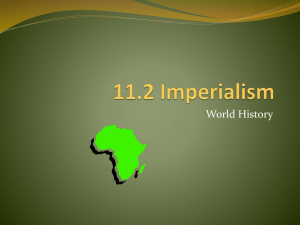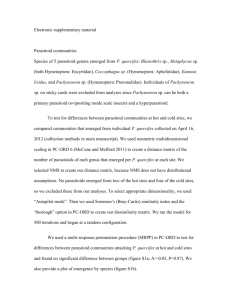new1 - Indus Valley School of Art and Architecture
advertisement
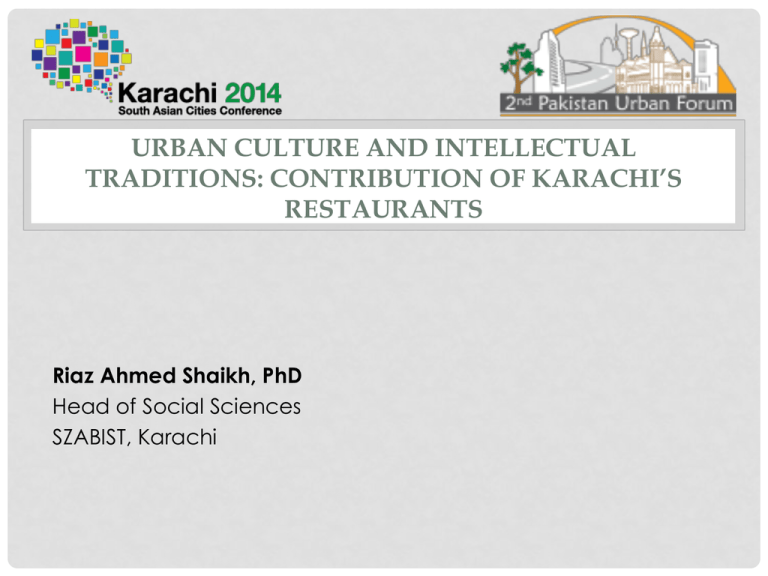
URBAN CULTURE AND INTELLECTUAL TRADITIONS: CONTRIBUTION OF KARACHI’S RESTAURANTS Riaz Ahmed Shaikh, PhD Head of Social Sciences SZABIST, Karachi • German Neo-Marxist Philosopher cum Sociologist Jurgen Habermas discussed the concept of “Public Sphere” in his work” “The Structural Transformation of the Public SphereAn inquiry into a category of Bourgeois Society. • The public sphere (German Offentlichkeit) which means: • “An area in social life where individuals can come together to freely discuss and identity societal problems, and through that discussion influence political action” • “It is a discursive space in which individuals and groups congregates to discuss matters of mutual interest and, where possible to reach a common judgment”. • In Europe the discursive areas such as Britian’s Coffee houses, France’s Saloons and Germany’s Tischgesellschaften are its vivid example. • In case of Egypt Najeeb Mahfooz in his novel Cairo has recorded his account of the city’s public sphere. • Karachi emerged as an important sea port during colonial period. Parsis, Persians, Hindus, Christians, Jews and other communities made it a cosmopolitan city in its true sense. • A vibrant multicultural life emerged in the city during colonial days. • Western cultural impacts Karachi during that time in several dimensions including Architecture, Education, living style and culturally. • Several areas had emerged as public sphere before partition and further change took place after 1947. • Karachi’s several café and restaurants truly emerged as “Public Sphere”. 1- Pauf Restaurant- Located at the crossing of M.A. Jinnah (then Bunder Road). 2- Café George- Saddar 3- Kwalti Restaurant- Saddar 4- Café Jehan- Regal Chowk 5- Central Coffee House- Near Jabees Hotel 6- Jangyan Hotel- In Chakiwara- Layari 7- Ari Hotel- Baghdadi- Layari 8- Sulaimani Hotel- Chakiwara- Layari 9- Piyala Hotel- Chakiwara- Layari 10- Elfi Restaurant- Near Zaibunnisa Street 11- Zaleen Coffee House- Regal Chowk 12- Café Paradise- Shahrah-e-Iraq 13- Café Al- Hasan- Near Board Office, Nazimabad, Bridge • These restaurants worked as Public sphere where political activists, literacy figures and students used to meet at these places. • Those spaces emerged as the meeting points where discussions on philosophy, literature and students activities used to be held regularly. • Several prominent students activists and political leaders started their careers from these restaurants. • Poets, short story writers, novelists and progressive TV and Radio performers were also frequent visitors of these places. • Prominent journalists were also visible / regular visitors to these restaurants and cafes. • A clear voice of dissent for democracy, people rights could be heard at these places.
